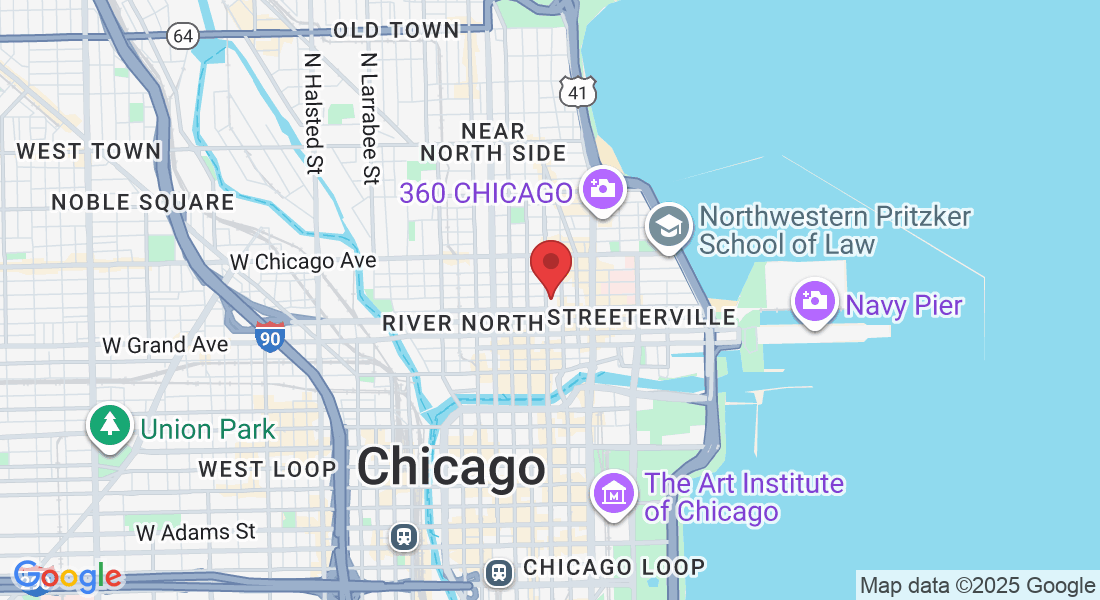
Finding The Best Burial Insurance in Your 60s (Real Rates)
Although it’s still relatively reasonable to purchase burial insurance in your 60s, time is running out. As you approach the male and female mortality ages (76), the rate begins to increase (80). if not confined.
A sort of insurance called burial insurance is made to pay for funeral fees and other costs associated with passing away.
Let’s say you are in your 60s and thinking about getting funeral insurance. In that scenario, it’s critical to comprehend your selections and conduct investigation before making a choice.
This article will go through the variables to take into account, the types of burial insurance that are offered, and how to choose the best one for your requirements and financial situation.
Factors to Consider When Buying Burial Insurance in Your 60s
Regardless of your age, there are a few things to think about when purchasing burial insurance.
There are a few extra considerations you might want to make if you’re in your 60s, though. These are some things to remember:
Your health: It could be more difficult to acquire reasonably priced funeral insurance if you have any pre-existing medical conditions. Some health issues, such as the need for oxygen, may not be covered by all insurers, or those with pre-existing diseases may pay higher premiums. When applying for burial insurance, it’s crucial to be truthful about your condition because failing to do so could result in the cancellation of your coverage.
Your spending plan: The cost of burial insurance can vary based on the coverage you select. Finding a policy that fits your budget is crucial, but you should also be mindful that less expensive policies might not provide as much coverage. Think about your budget for monthly rates and any potential supplemental expenses for the insurance policy.
Needs of your family: Choose a policy with additional coverage if your spouse or other family members will be depending on your burial insurance to pay for your funeral costs. Consider whether you want to leave your family any additional money to meet other final costs, such as unpaid bills or existing debts.
Your final eulogies: You should consider your desired funeral setting before buying burial insurance. This covers the type of service you desire, whether you wish to be buried or cremated, and the location of your funeral. This can assist you in figuring out how much insurance you’ll need to buy to cover funeral costs.
With funeral insurance, safeguard the future of your loved ones.

Different Types of Burial Insurance In Your 60’s
Burial insurance comes in a variety of forms, each with a unique set of advantages and disadvantages. Listed below are a few of the most popular choices:
Conventional burial insurance is a sort of whole life insurance that is made primarily to pay for funeral fees and other post-mortem expenses. Over time, this kind of insurance builds up cash worth that can be used to cover premium payments or borrowed against in emergency situations. Conventional burial insurance could also come with further benefits, such the choice to include riders for long-term care insurance or accidental death protection.
Insurance for uninsured loss: Similar to standard burial insurance, final expenditure insurance is frequently less expensive and may provide a lower level of coverage. This kind of insurance may not offer other advantages like cash value accumulation or riders because it is often only intended to cover the costs of a standard funeral.
Funeral insurance prior to need: You can pre-pay for your funeral costs at today’s rates with pre-need funeral insurance, a sort of insurance. Although they won’t have to pay for your funeral out of pocket, this can lessen the financial load on your loved ones. Pre-need insurance does not accrue financial value and is typically less expensive than standard burial insurance.
Group burial insurance: is provided by a company or other group and is frequently offered at a reduced price. This kind of insurance might provide less comprehensive coverage, and you might not be able to tailor your coverage to meet your individual requirements.
How Much Does Burial Insurance Cost In Your 60s
You can still find reasonable funeral insurance in your 60s, as we mentioned previously in this post. Yet, the clock is ticking. Between the ages of 50 and 60, the price of funeral insurance rises by 50 to 75 percent.
When you reach your 70s, it doubles from your 60s. To guarantee your price, you must act immediately.
DON’T be the senior I spoke to who is 76 years old and paying 100–150 percent more than they need to because they put things off!
These are the level coverage “Real Rates” with no waiting period.


How to Find the Best Burial Insurance for Your Needs and Budget
There are a few measures you may take to find the finest burial insurance for your requirements and financial situation:
Browse around: Do not be hesitant to compare the various policies and pricing offered by various insurers. This might assist you in locating a policy that provides the protection you require at a cost you can bear.
Check the small print: Make sure you are aware of the coverage provided by the insurance policy you are thinking about. If there is anything you don’t understand, make sure to read the fine print and ask questions.
As we previously indicated, there are a number of different forms of burial insurance available, each with a unique set of advantages and disadvantages. Choose the option that best fits your demands and budget after giving your options some thought.
Get expert assistance: Consider asking a financial counsellor or insurance professional for assistance if you need help selecting the best funeral insurance policy or understanding your alternatives. They can provide any information you need and assist you in locating a policy that satisfies your requirements and price range.
In conclusion, purchasing burial insurance in your 60s is a significant choice that needs to be carefully thought through.
You may obtain the ideal burial insurance for your requirements and price range by taking the time to investigate your selections and comprehend what is and is not covered by various policies.
Be sure to read the fine print and ask questions if there is anything you don’t understand, and don’t be hesitant to call a financial counsellor or insurance agent for assistance if you need it.
The Importance of Buying Burial Insurance in Your 60s
If you’re in your 60s, you might be pondering your final arrangements and the financial strain that paying for your funeral might have on your loved ones.
By paying for your funeral and other end-of-life costs, burial insurance can help to lessen this load.
Burial insurance might give you comfort in addition to giving your loved ones financial security.
You may be able to concentrate on other crucial issues, like spending quality time with your loved ones and making the most of your remaining years, if you know that your funeral expenses are covered.
Burial insurance is intended specifically to pay for your funeral and other end-of-life costs, whereas life insurance is meant to safeguard your loved ones financially in the case of your passing.
As a result, even if you have life insurance, you might still want to think about getting burial insurance to make sure that your final expenses are covered.
How Much Coverage Do You Need In Your 60s
Your unique needs and situation will determine how much coverage you require. Consider the following factors when deciding how much insurance you require:
The kind of funeral you want: Depending on the style of service you want and the arrangements you pick, the price of a funeral might vary greatly. To ensure that your costs are met, you could need more coverage if you choose a more lavish funeral.
Other costs: In addition to your funeral costs, you might want to take into account any extra end-of-life costs your loved ones might have to pay. This can involve unpaid loans, bills, or other financial commitments.
Your spending plan: Finding a policy that fits your budget is crucial, but you should also be mindful that less expensive policies might not provide as much coverage. Choose a policy that offers the protection you require without breaking the bank by taking into account how much you can afford to spend in premiums each month.
In conclusion, purchasing burial insurance in your 60s is a significant choice that can give your loved ones financial security and give you peace of mind.
You can locate the ideal funeral insurance plan to suit your requirements by taking into account your unique requirements and spending limit.
Be sure to read the fine print and ask questions if there is anything you don’t understand, and don’t be hesitant to call a financial counsellor or insurance agent for assistance if you need it.
The Benefits of Pre-Planning Your Funeral
Pre-planning your funeral is an additional choice to consider in addition to buying burial insurance.
Making your funeral arrangements in advance enables you to express your final desires and might lessen the strain on your loved ones during an already trying period.
Planning ahead for your funeral has a number of advantages, including:
Peace of mind: Knowing that your funeral desires will be followed out and that your loved ones won’t have to make unpleasant decisions on your behalf might offer you peace of mind.
Financial security: Making funeral arrangements in advance might give your loved ones financial security. You can save your loved ones from having to foot the bill for your funeral by prepaying the costs at today’s rates.
Stress relief: Funeral planning may be a difficult and emotional process. By making funeral arrangements in advance, you can relieve your loved ones of this responsibility and free them up to concentrate on their sorrow and remembering you.
Do your research and pick a respected funeral home or provider if you’re thinking about pre-planning your funeral.
Ensure that your loved ones are aware of your final desires and that your funeral arrangements are in written so that there is no misunderstanding.
Other End-of-Life Planning Considerations
There are various other end-of-life planning factors that you should take into account, in addition to buying burial insurance and pre-planning your funeral.
They consist of:
Making a will: A will is a legal document that specifies how your assets should be allocated in the event that you pass away. Even if you have a tiny estate, it is still necessary to make a will because it can help to ensure that your intentions are honoured and that your loved ones are taken care of.
Making a power of attorney: A power of attorney is a legal document that enables you to name a representative to act on your behalf in the event that you are unable to. It’s critical to select a person you can trust to represent your interests and to explain your needs to them in a straightforward manner.
arranging for a funeral: It’s crucial to let your loved ones know about and put in writing any exact funeral preparations you have in mind. You can specify the kind of service you choose, whether you want to be buried or cremated, as well as any other particular demands you may have.
You may make sure that your final desires are carried out and that your loved ones are taken care of by making time to arrange for your end-of-life requirements.
It is never too early to start thinking about your end-of-life intentions, so don’t put off this crucial planning.
Conclusion
An important choice that can give your loved ones financial security and give you peace of mind is to purchase funeral insurance while you are in your 60s.
You can locate the ideal funeral insurance plan to suit your requirements by taking into account your unique requirements and spending limit.
Another choice to think about is pre-planning your funeral because it enables you to express your intentions for your final days and can protect your loved ones’ finances.
Making a will and appointing a power of attorney are two more end-of-life planning considerations that can help to make sure that your loved ones are taken care of and that your desires are carried out.
Don’t put off this crucial planning since it’s never too early to consider your end-of-life requirements.



